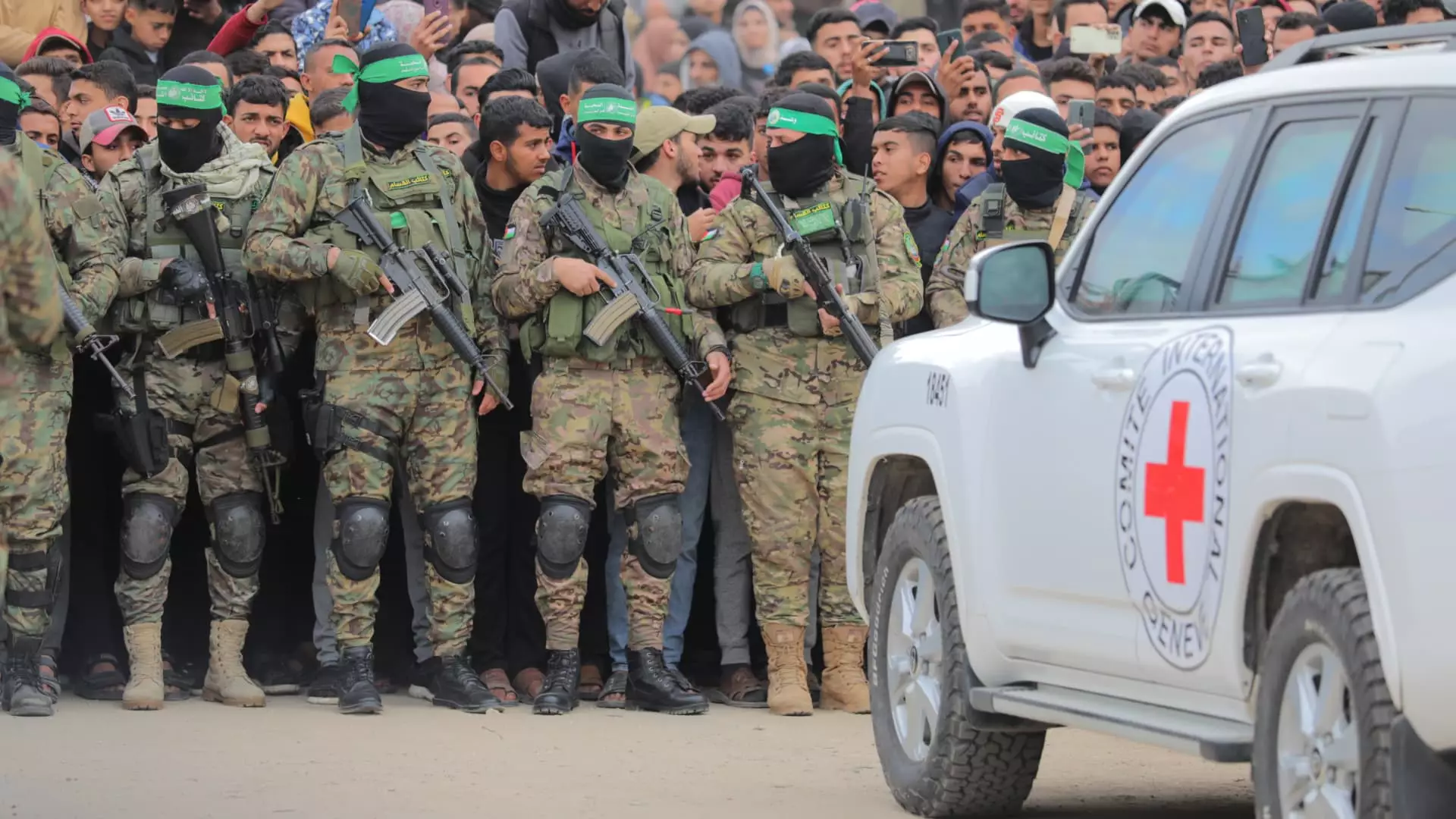The ongoing conflict between Israel and Hamas has a long history, characterized by cycles of violence, hostilities, and temporary ceasefires. At the heart of these intractable struggles often lie hostage situations that catalyze further military action while simultaneously providing opportunities for negotiation. The recent release of three Israeli hostages has brought renewed attention to these sensitive negotiations, highlighting the human cost of the ongoing conflict and the grave implications for both Israeli and Palestinian families.
The release of Ohad Ben Ami, Eli Sharabi, and Or Levy on Saturday painted a vivid picture of the dire circumstances surrounding hostages held in Gaza. Witnessing their emaciated condition during a live televised handover was a poignant reminder of the brutalities that accompany such abductions. For families like that of Sharabi, the moment holds dual truths—joy at the return of a loved one and sorrow over the loss of family members in the attack that led to the kidnapping. The striking visuals of the men, described as looking skeletal, underline the physical and psychological toll that prolonged captivity wreaks on individuals. This not only impacts the hostages themselves but reverberates through entire families, leaving them to grapple with both the trauma of loss and the relief of reunion.
The Dynamics of the Ceasefire Agreement
The recent hostage exchange is not an isolated incident but part of a broader ceasefire agreement facilitated by international actors, specifically the United States, Egypt, and Qatar. This complex web of negotiations aims to create a sustainable halt in hostilities and allow for further exchanges—reportedly involving 33 Israeli nationals, primarily women and children. The terms necessitate the release of approximately 2,000 Palestinians, which includes many who were detained for serious offenses during the conflict. Yet, this balance creates a contentious backdrop. As the hostages return, questions abound regarding the moral and ethical implications of releasing prisoners convicted of violent acts, raising the stakes for negotiations and public sentiment in Israel.
Complicating matters, U.S. President Donald Trump’s controversial proposal to relocate Palestinians out of Gaza and transform the territory into a developed enclave has stirred significant backlash. The idea, perceived by critics as a blatant case of ethnic cleansing, has found little favor among Arab states and Palestinian groups. In contrast, Israeli Prime Minister Benjamin Netanyahu’s endorsement of these proposals reveals the divisive potential of international interventions in such a tumultuous landscape. As critics of the plan illustrate, it risks exacerbating existing tensions and undermining prospects for a peace process that respects the rights and identities of both Israelis and Palestinians.
As negotiations move into their second phase, pressure mounts to ensure the return of the remaining hostages while also contemplating a strategic withdrawal of Israeli forces from Gaza. The backdrop of past violence—1,200 Israeli casualties and over 47,000 Palestinian deaths—demands a careful approach that balances military objectives with humanitarian concerns. Any missteps here could lead to a resurgence of violence, thwarting opportunities for diplomacy and conflict resolution. The stakes are high, with families on both sides holding their breaths, caught in a cycle of dread and hope.
While the recent hostage release represents a glimmer of hope in a protracted conflict, it also underscores the fragility of such agreements. The delicate nature of identity, loss, and reconciliation amidst a backdrop of violence raises profound questions about the future of Israeli-Palestinian relations. For families impacted by this ongoing strife, every negotiation entails a cacophony of emotions where joy competes with sorrow, and release juxtaposes confinement. Only the passage of time and the effectiveness of diplomatic efforts can reveal whether this exchange will serve as a catalyst for peace or merely a temporary reprieve from the tumult of violence.


Leave a Reply